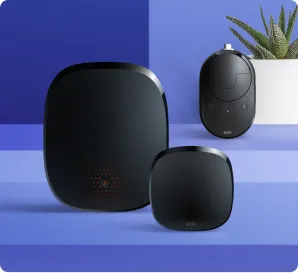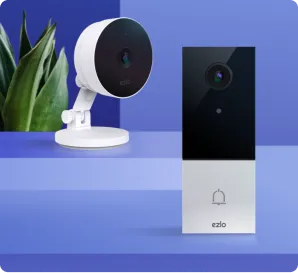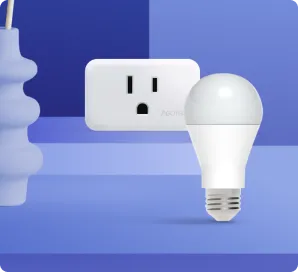Must you break the bank to secure your home with security home systems?
The short answer is yes and no.
While there are some pocket-friendly security home systems, the features these home security systems come with cannot be compared to the pricier ones. It is also worth noting that using high-end security systems in your home does increase its value. For example, installing security cameras and lights with sensors on your property.
Moreover, having security systems set up in your home is an addition your insurance company will delight in. The reason is they reduce the risk of damage and theft to your property, thus allowing you to save on home insurance costs to even up to 20%. So, in essence, this will end up returning some money to your pocket.
Types of security home systems
While there are many home security system reviews for different products, security home systems come in different functions and types. They can be classified into four:
Monitored
These are the most sold home security systems in the current market. Once installed, they alert emergency responders, security teams, and call centres every time an intruder is on the premises. They will also send an alert in the event of a fire or any other emergency. Monitored systems are of two types:
Self-monitored:
These are the ones that users can control and monitor. They include sirens that call/text you when there’s an intrusion, security cameras, door sensors, and motion sensors.
Pros
- Real-time alerts enabling quick responses.
- Users can relocate them with ease to a different area.
- The cameras can record videos which can be used as evidence.
- They are affordable.
Cons
- Require internet and electricity connection to work.
- Won’t send an alert when mobile service isn’t available.
- Their coverage is only available to where they’ve been installed.
- You’ll have to install many cameras to cover different areas.
Company-monitored:
They are operated and monitored by professional personnel and organisations. They include silent alarms, loud sirens, sensors, cameras, motion detectors, and door sensors. When the alarm is triggered, police or a security company is dispatched to your home.
Pros
- Most run on traditional telephones or cellular radios which have battery backup. So, they’ll still work when there’s a power outage.
- No need to call the police during an intrusion.
- The sirens and alarms are too loud and thus frighten intruders.
- When properly installed, blind spots are eliminated.
Cons
- Your phone is needed to disable the alarm failure to which authorities will be contacted.
- You could get a false-alarm charge.
- The alarms must always be engaged to be activated.
- Most come with a contract and monthly fee.
Unmonitored
Unmonitored security systems work by setting off a very loud (even deafening) distress signal all over the property when the alarm is triggered. They consist of smoke detectors, window & door sensors, sirens, sensors during glass breaks, motion sensors, and control panels.
Pros
- The level of security they give is good despite not being as comprehensive and sophisticated as monitored systems.
- They are easy to operate and utilise owing to their self-run capabilities.
- They’re cheaper than monitored ones as they lack ongoing fees or subscriptions.
Cons
- Not useful when the homeowner is away as they are heavily dependent on the user.
- Systems aren’t automated, thus making it hard to communicate with authorities.
- They are less secure as compared to monitored ones.
Wireless
These security home systems don’t involve wiring during setup. They include alarms, cameras, sensors, and detectors; they also have a three-fold process, i.e., detection, annunciation, and monitoring.
Pros
- Uninstalling and installing is easy
- They come in Do-It-Yourself kits.
- They do not have wires that burglars can cut.
- They are easily controlled remotely.
Cons
- Their signal can be obstructed by different things like large objects etc.
- Users have to stock on batteries as backup
- They are vulnerable to hacking
- Some come with wires used to power their control panel.
Wired
These are systems that are connected to a low-voltage wired alarm panel. All the entry points are wired to the control panel, including the keypads and motion detectors.
Pros
- They are entirely reliable, consistent, and secure security home systems.
- They have easy maintenance since all you need is to change the batteries
- They aren’t as prone to hacking as wireless systems.
- They come with various features boosting security.
Cons
- Their installation is expensive
- They are also challenging to uninstall
- The control location is one, and that’s the only place the security system can be disarmed and armed.
Conclusion
Home security systems are meant to secure your home starting from the entry point. You will never have to worry about security at home when properly installed.


















